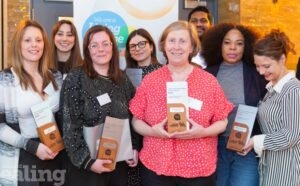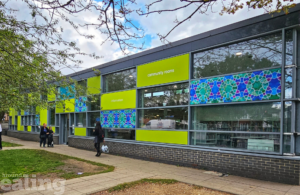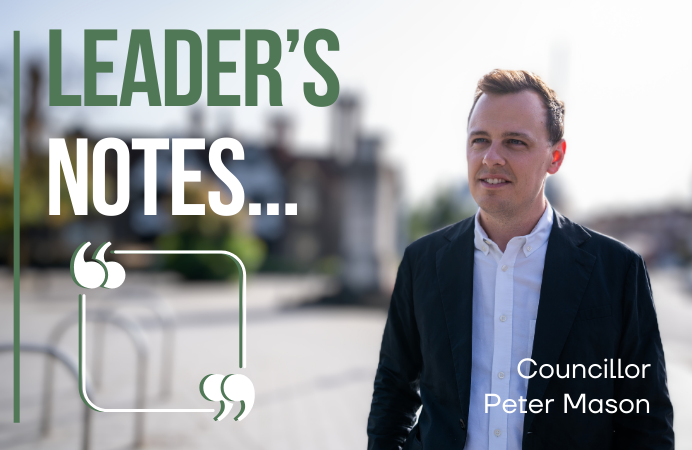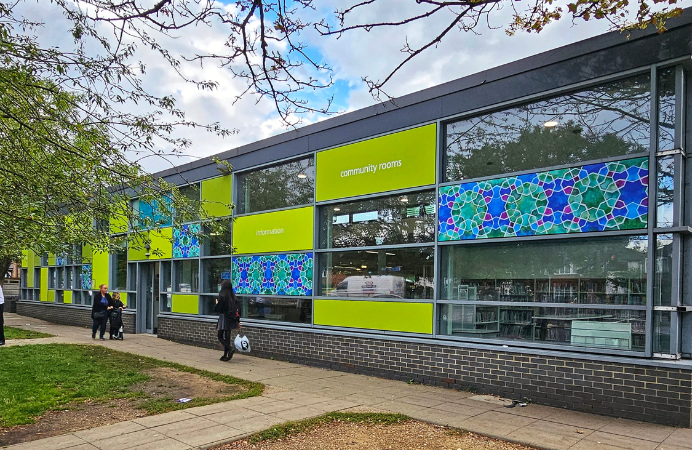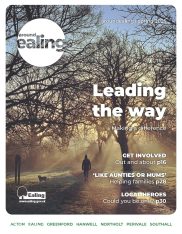“I know a lot of people might think, well, I’m not at risk, so I’m not going to get an HIV test,” says Southall resident Rebecca Mbewe, “but before you know it, they’re in intensive care, you know, having had no warning signs. So testing is vital.”
Rebecca is the co-author of ‘Our Stories Told By Us: Celebrating the African Contribution to the UK HIV Response’. She works in research focusing on minority women’s health, including HIV, and has more than 25 year’s lived experience of the condition. We spoke to her to mark World AIDS Day 2023, which focuses this year on the importance of getting tested.
Although 2022 saw the highest ever uptake of HIV testing among gay, bisexual, and other men who have sex with men, data shows there is still work to be done to improve testing uptake among other groups, especially ethnic minorities and women.
Early testing is key
“I migrated to the UK from Zambia in 1995 to be with my husband, who was studying here,” she told us. “He began to get poorly, and his HIV test came back as positive, which was a huge shock to both of us. Sadly, he died in 2002.
“I had tested positive too. I didn’t need medication straight away, but by the time I did need it in 2004, I had options on the table. Early HIV medications were very harsh and toxic with many side effects, but it’s much less so now. I only have to take one pill a day.
Rebecca is clear that early testing is vital in combating HIV. “The most important thing with HIV is to find out as early as possible. The virus gradually destroys your immune system, so the sooner you are plugged into care, the better your health outcomes. There’s also peace of mind – who doesn’t want to know exactly what their healthcare circumstances are?”
Myths of HIV
Perhaps more than any other serious long-term condition, HIV is subject to myths and assumptions that drive stigma and exacerbate fears of testing.
“When it comes to things like relationships, I always say someone living with HIV is actually probably the safest person that you can be intimate with, because you are literally checked for everything,” Rebecca added. “So as well as your heart, your cholesterol, your kidney functions, and so on, that includes checking your sexual health is part of your standard care.
“That means I’m very confident about my health status. There’s no chance that a partner could get anything from me. I’m more worried about what I could get from an untested partner.
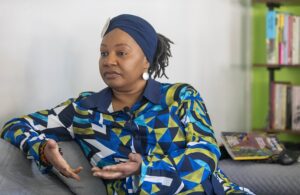
“People are often frightened of testing because it comes with assumptions of one’s sexuality or behaviour, but these are myths that were disproven a long time ago. You can catch the condition from a single encounter – it’s the same as how some people get pregnant during their first ever sexual experience. HIV can sometimes stay in your body for well over 10 years without you knowing. If you’re in a relationship and you don’t feel ill, it’s still best to have regular sexual health checks so you can make sure that everything remains hunky dory.
“But HIV doesn’t have to be scary. It’s a condition that can be well managed, with expectations of living a life span the same as that of someone without HIV. Treatment options are now so improved that women are now able to deliver naturally, and babies are born HIV free. With the right support, they can be breast fed by their mums. Also, people on HIV treatment with an undetectable viral load cannot pass on the virus. When someone with the condition receives the right treatment, the HIV virus in their body is so low it can no longer be detected, and it is not possible to pass it on to their sexual partners. Undetectable means untransmittable. 30 years ago, nobody would have thought this possible!”
Peer-to-peer support
For Rebecca, having the support of peers was a real game changer after she was diagnosed. “I think it’s really key to have peer support in place and because that’s a life saver,” she said. “Positively UK helped me when I was diagnosed. They showed me that life goes on after diagnosis and it didn’t need to be scary. Now I volunteer for them myself, to support others living with HIV. When I meet other people who have HIV through my volunteering and I tell them how long I’ve been living with the condition, they almost fall off their chairs in surprise. But then they too start to understand that HIV can now be managed well with treatment.
The contribution of African women

“I co-authored the book ‘Our Stories Told By Us’’ to reopen the conversation around HIV, because it seems to have just gone underground. We want to highlight the fact that it’s still around. But also, we’ve written it as five black African migrant women and the idea was to show our contribution to the HIV response in the UK, because we are one of the demographics most likely to be affected by HIV. I think it’s very important to have conversations openly with our children and grandchildren, so that we get to a point where there is no HIV being passed on anymore. It must end with this generation.”
“Tests are free and confidential”
Councillor Josh Blacker is Ealing Council’s lead member for healthy lives. He said: “In 2022 we saw further improvements in HIV testing and access to treatment, but progress has been uneven. There remains some concerning trends around low testing in certain groups, particularly in women and those from ethnic minority backgrounds. Even if you think you’re at very low risk, if you are sexually active, get yourself tested regularly. An HIV test is free and confidential, and if you do test positive, treatment is so effective that you can expect to live a long healthy life without passing HIV on to partners.”
Accessing testing, treatment, and support
People living with, affected by, or at risk of HIV in the borough can receive a wide range of support services to help cope with the mental and physical impacts.
There are several options for HIV testing. These include sexual health clinics, both locally and out of the area. London Northwest Healthcare Trust (LNWHT) is the main sexual health clinical provider in Ealing. You can also go via your GP; you can order an online kit at www.shl.uk; or you can go through LNWHT’s community partners Spectra and the Terrence Higgins Trust, both of which provide testing in community settings.
For more details about clinics and treatment, go to www.nwlondonsexualhealth.nhs.uk and click on ‘services.’ These clinics provide testing for HIV and other STIs and also give specialist support. The HIV clinics provide HIV treatment and care to those living with HIV.
To contact Ealing HIV Support Service call 020 3137 3373, email info@livingwell.cic.com or, for more details, visit www.livingwellcic.com/ealing.
Positively UK provides a wide range of emotional wellbeing and mental health services including counselling, coaching and peer support. Find out more at www.positivelyuk.org.
For more on World AIDS Day, visit www.worldaidsday.org.
London HIV Fast Track Cities is the local element of a global movement to end HIV.
If you have HIV, you are eligible for a flu and COVID-19 vaccination this winter to help protect against serious consequences of these infections.
